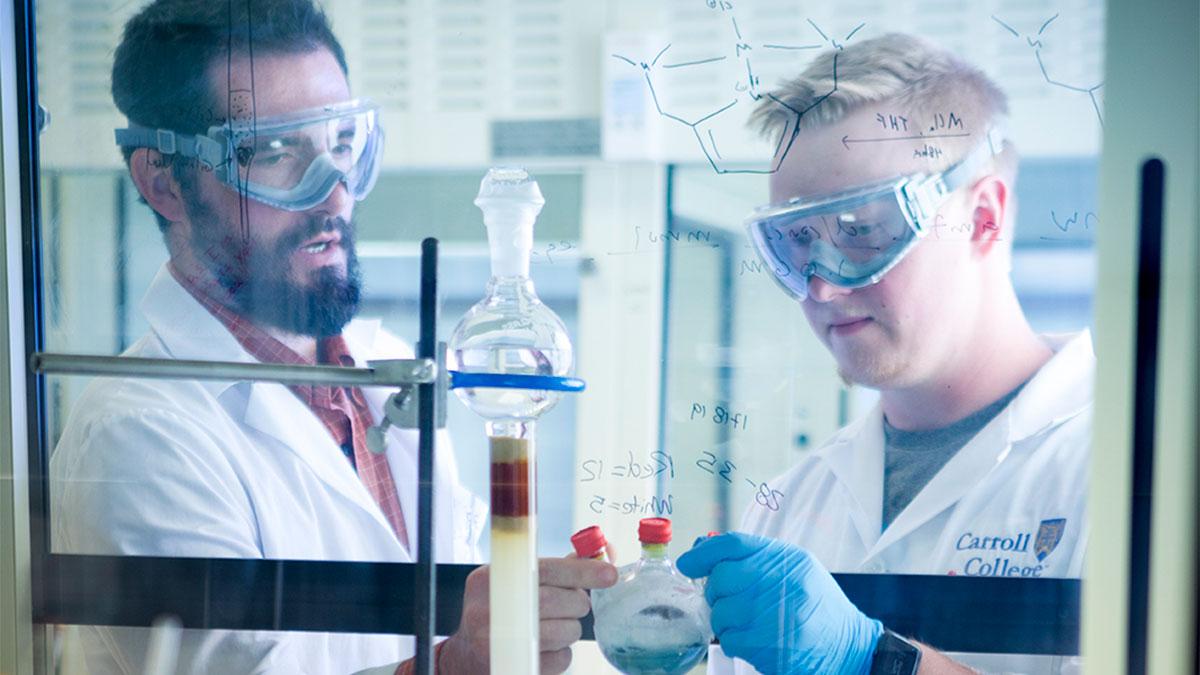NASA recently awarded Carroll College Assistant Professor of Chemistry John Rowley an $86,000 grant through the NASA EPSCoR Rapid Response Research program. Using the grant, Professor Rowley will hire three Carroll students this summer to conduct research with him. The Carroll College research will support future NASA missions by developing a method to create solar panels using minimally-processed resources readily available on Mars.
This grant supports Carroll’s continued commitment to engage students in experiences that prepare them for their post-graduation goals. Faculty scholarship that engages our undergraduate students is yet another example of how Carroll College fulfills its motto of Non scholae, sed vitae – Not for school, but for life.
“Preliminary data collected by undergraduates in Carroll College chemistry courses inspired this proposal and made the grant possible. Our students make meaningful intellectual contributions to real-world problems since the chemistry program has integrated research into the curriculum,” said Professor Rowley.
The Carroll Chemistry grant proposal is titled: All-metal-oxide p-n photovoltaic junctions fabricated using materials abundant in the Martian regolith. Preliminary data for this research project was presented as a Student Undergraduate Research Festival (SURF) presentation and has been the subject of multiple journal articles written in the Integrated Lab course this spring.
"I had the immense pleasure of working on this research project in the Integrated Lab. Something unique about the chemistry department at Carroll is that as an undergraduate, you spend your senior year conducting research. It’s incredible that as a 22-year-old, I have the opportunity to be on the frontier of cutting-edge research as part of my course work," said Anna Zepeda, a 2021 Carroll College chemistry major.
Over the summer Prof. Rowley and his three research students (one rising sophomore and two rising juniors) will continue fabricating, characterizing, and optimizing the new solar panel devices. “The Integrated Lab students are getting data and samples ready to hand off to my summer research team,” said Prof. Rowley. “Everyone is really excited about what we have already learned about this system and we are looking forward to having a lot of fun conducting research this summer.”

